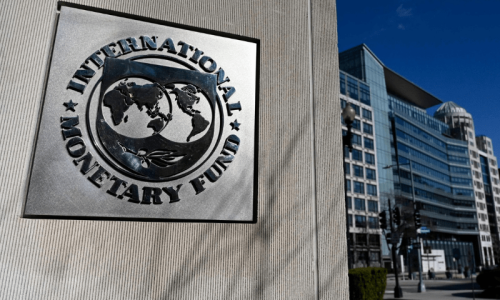• Centre seeks scrutiny of provincial uplift plans to ensure balanced growth
• Aims to end federal-funded provincial projects
• To avoid unsustainable debt, foreign funding to be secured only for priority sectors
ISLAMABAD: The federal government is formally seeking the detailed scrutiny of provincial development plans down to the district level and their foreign financing through the National Economic Council (NEC) as part of the National Planning Framework (NPF), ostensibly to ensure balanced development and growth across the country.
The NPF, set to be presented to the NEC ahead of the federal budget for 2024-25, also seeks restrictions on parliamentarians getting funds for development schemes under the Sustainable Development Goals’ Achievement Programme (SAP), which generally consumes over 10 per cent of the federal development budget every year, for political gains.
Simultaneously, mainly because of unsustainable debt levels, the envisaged international financing should only be procured for projects in priority sectors and strictly for domestic requirements, while “donor-driven or provincial demand-based projects for foreign funding should be avoided”. Governments have often borrowed money for scholarships or to meet the day-to-day needs of the nation.
“It is the right time to say goodbye to development partners,” the meeting was told. The way Pakistan has been obtaining loans has not been supporting the national economy; instead, it has been counterproductive.
The overall theme of the NPF is to put an end to provincial projects funded from federal budget and improve resource deployment through federal and provincial “synergy” in light of the ‘true spirit of the constitutional scheme’ including the 7th National Finance Commission Award and 18th Constitution Amendment.
“The provinces do not present their detailed development programmes (ADPs) before the NEC. In future, the provinces should present the detailed ADPs district and sector-wise to assess the overall national development trend and seek guidance of the NEC,” said an official quoting the final draft of the NPF shared with a group of federal and provincial representatives at a meeting presided over by Deputy Chairman Planning Commission Dr Jehanzeb Khan.
The NPF will “offer an operational strategy for federal and provincial governments in the context of prevailing constitutional responsibilities and roles for shared and common objective of development and growth,” the official said, adding that the concept of balanced development and regional equity was not only the responsibility of the federal government but equally that of the provinces through their respective development programmes. It was also the essence of the 7th NFC and 18th Amendment, the official said.
The Ministry of Planning and Development “is all set to submit the NPF before the NEC after lengthy deliberations,” an announcement said after the meeting attended by the senior federal and provincial officials of various ministries. “NPF aims to guide planning process, development, and improve project effectiveness. It will help to define contours for federal and provincial public investment financing,” it said.
The framework will lay out the national objectives and ensure that the polices, plans, and projects contribute for the provision of public goods and improve service delivery. Furthermore, it will draw broad jurisdictional lines between federal and provincial domains for funding of development schemes and alignment with the federal plans. It will also aim to harmonise development spending, done through federal and provincial development programmes, to achieve optimum development outcomes at all levels: federal, provincial and local.
Mr Jahanzeb Khan told the participants that the NPF was a milestone for determining and coordinating the national and development priorities between the federation and the provinces, setting the guidelines for determining the scope of federal and provincial governments in the effective use of resources and national priorities.
He emphasised that public welfare was the responsibility of the government, and there was a need to clearly define which areas of development were under the jurisdiction of the provincial and federal governments.
This would require a change in the thinking that the provincial governments lacked human capacity and financial powers. Instead, he said provinces were rich in human, natural, and financial resources.
Published in Dawn, March 12th, 2024













































Dear visitor, the comments section is undergoing an overhaul and will return soon.